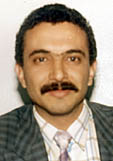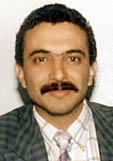
Yemen has yet to wake up to the world of the internet [Archives:1998/34/Culture]
August 24 1998

He worked as a researcher at the Educational Research Center and a lecturer at Science & Technology University for 5 years. Then he moved to TeleYemen where he now works as an Internet Product Controller responsible for everything related to the Internet and customers.
Mohammed Hatem Al-Qadhi, Assistant Managing Editor of Yemen Times talked to him about his work and the growth of this sector in the country.
Q) Could you give us an idea about the Internet in Yemen?
A: The Internet in Yemen was first introduced in 1996 with 176 customers only. The process is going on and we now have 1545 customers and we have 32 home pages hosted at the TeleYemen server. The main server was installed in Sana’a and the company is thinking of installing another one in Aden in the near future.
Q) What kind of customers do you have, especially pages?
A: Most pages are for newspapers, organizations, commercial companies, etc. The first newspaper to come on-line was the Yemen Times. Today, there are many more newspapers like Al Mithaq, Al Shura, Ra’i, 26th September, etc.
Q) Some customers prefer to have home pages in America, why?
A: I don’t really know, they can actually get the service here in Yemen. It might be because they are so used to getting this service outside of Yemen. Also it might be because of the difference in prices, not the quality of service.
Q) Can you tell us about some of the developments of the Internet in Yemen?
A: Actually we have many modems which are running at 14,000 bps. It could be set at faster rates. Actually, we have now increased it to 28 kilo bps, but that creates problems for some customers, especially in areas where the telephone lines are not so good. The users there suffer from disconnection. Therefore, we slowed down the speed to 14 k.
We bought 48 new modems. We are also in the process of installing routers in Aden to enable our customers to access the Internet without having to pay the local telephone charge between Aden and Sana’a which is 20 riyals.
Q) What are your plans to attract more customers?
A: We are always participating in conferences, like the Second Yemeni Economic Conference. We have also provided connectivity at the First General Conference on NGOs. We are now participating in exhibitions, like computer and communication exhibitions. It is our policy to participate in public activities. We are also running seminars. For example, the seminar of the Yemen Times at the Taj Sheba hotel, the seminar of the Al- Hadath Company in Taiz. Next week we will run a seminar at the faculty of medicine. at Sanaa University. In September, we will run a similar seminar in collaboration with Aden University and the Aden Chamber of Commerce. We are planning to run a seminar in Hodeidah.
Our product is very difficult to market. The people don’t know what the service is, or what its benefits are. We are therefore, doing our best to to attract new users. There are many barriers in the way of the Internet like the language, access to computers, etc.
Q) How fast does the number of your customers increase?
A: The numbers are increasing,. However, most of our customers are from Sana’a. We have 1189 customers in Sana’a, 92 in Taiz, 26 in Mukalla, and 102 in Hodeidah. We have 32 home page subscribers.
I believe these customers represent only 10% of the potential market.
Q) Can you tell us something about the ISDNC service?
A: The (ISDNC) Integrated System Digital Network is provided by BTC which is an integrated digital network. It will make the people access the Internet very fast. From one line, you can have six telephone lines with six Internet connections at the same time. As far as I know this system has been installed in Sana’a and it started working at the Al-Tahrir Cabinet. I don’t know when it will be available to other customers.
Q) Any last comments?
A: It is unfortunate to see Yemeni universities not accessing the Internet. I’d like to seize this opportunity to call them to the world of the Internet. It is so important for their researchers and students. We are ready to provide them with this service, and make especial arrangements for them.
——
[archive-e:34-v:1998-y:1998-d:1998-08-24-p:./1998/iss34/culture.htm]


